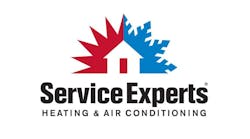As part of the U.S. Fire Administration's new Smoking and Home Fires Campaign to put an end to preventable home fire deaths, the USFA and longtime partner, the American Fire Sprinkler Association, are urging homeowners and builders to consider more widespread use of residential fire sprinkler systems.
U.S. Fire Administrator Gregory Cade, dubbed the President's fire chief, said his 40 years of work in fire protection have made him a strong proponent of installing residential fire sprinklers.
“I've seen what they can do,” Cade said.
According to Cade, the combination of working smoke detectors in the home and fire sprinklers can go a long way in reducing deaths from residential fires. More than 3,000 Americans lose their lives in residential fires every year, and the USFA continues to look for ways to bring down that figure, he said.
“It would be nice to say you can go back and retrofit existing homes, but at least you can put (sprinkler systems) into new construction,” Cade said.
Cade said the number of fire deaths has dropped significantly from an average of 15,000 annually in the 1970s because of a combination of more education for home residents, better building materials and practices, smoke detectors and fire sprinkler systems.
As detailed in its ongoing National Residential Sprinkler Initiative, the USFA advocates the use of automatic fire sprinklers to save lives, reduce injuries and protect property. Since the creation of the agency in the 1970s, the USFA has been actively involved in the research and development of residential sprinkler systems. According to research done in support of the initiative, “an identified history of success” demonstrates the need for fire sprinkler technology in all residential occupancies. Residential fires account for 80% of all fire deaths.
Janet Knowles, executive vice president of the American Fire Sprinkler Association, said fire sprinkler systems in the home help the most vulnerable potential victims of fire deaths: young children and older adults.
“We definitely believe smoke detectors are important, but if residents of the home are not ambulatory or cannot respond to a smoke alarm quickly, that's where fire sprinkler systems come in and saves lives,” Knowles said.
AFSA has reached out to residential builders to educate contractors about incorporating fire sprinklers into home design, according to Knowles. The organization's efforts include sponsorship of a more than 1,000-sq.-ft. booth at the 2008 National Association of Home Builders convention Feb. 13-16 in Orlando, Fla.
“Builders across the county are gaining interest,” Knowles said.
“We certainly encourage the use of residential sprinklers. The USFA would love to see the building community make them something that is very normal and that you'd find in any home, just like bathrooms and showers,” Cade said.
In the U.S., the standard for single-family homes and duplexes is the National Fire Protection Association's Standard 13D. This covers both site-built and manufactured homes. Sprinklers add about 1% to the cost of a new home, according to the Residential Fire Safety Institute.
Additionally, the NFSA and its Common Voices Coalition, a fire sprinkler advocacy group made up of people who have lost loved ones in fires, met with U.S. lawmakers in late January to support the proposed Fire Sprinkler Incentive Act.
The act, introduced in early 2007, would allow property owners who retrofit their buildings with fire sprinklers to accelerate depreciation of the systems and recoup their investment in a much shorter period of time versus the 39 years currently in place. The bill also would give property owners an incentive to install fire sprinkler systems on a retrofit basis.
NFSA and coalition members met with lawmakers on the Senate Finance Committee and the House Ways and Means Committee, which are considering the legislation.
Knowles said her organization also is a member of the Home Fire Sprinkler Coalition, a partnership of groups that distributes information about the benefits of fire sprinklers in the home to consumers, builders, fire service personnel, insurance and real estate agents and policymakers through its Website. Additional information is available at www.homefiresprinkler.org.

